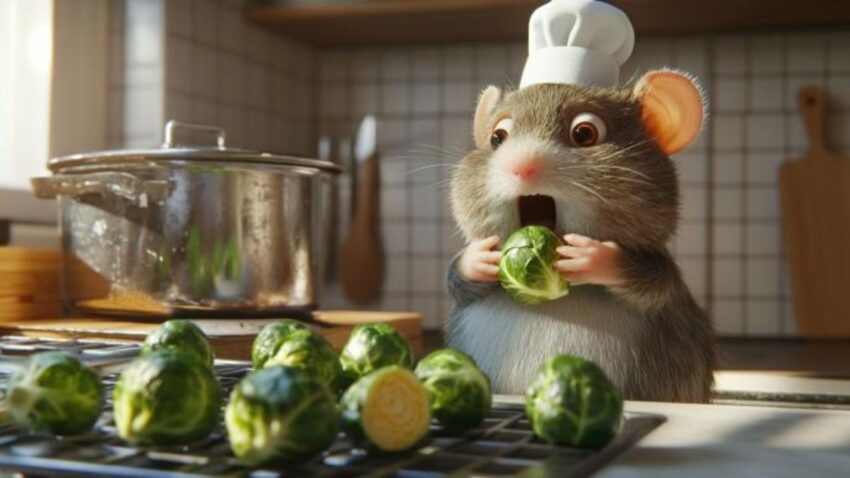TL;DR Summary Yes, hamsters can eat turkey, but only in small amounts and when it’s plain, cooked, and unseasoned. Turkey provides a good source of lean protein, but it should be offered as an occasional treat, no larger than a pea-sized piece. Avoid any turkey with seasonings, oils, or additives, as these can harm your…
Author: Vivian Whiskerson

Is Pomegranate Safe for Your Hamster? What You Need to Know
TL;DR Summary While pomegranates contain beneficial nutrients like vitamin C and antioxidants, they are not a recommended treat for hamsters. The high sugar content, acidity, and risk of choking on seeds can lead to health problems such as obesity, diabetes, and digestive issues. This is especially dangerous for Dwarf hamsters, who are particularly sensitive to…

The Connection Between Hamster Activity Levels and Cage Size: What You Need to Know
When it comes to keeping a hamster as a pet, one of the most overlooked factors is the size of their living space. Many people assume that because hamsters are small creatures, they don’t need much room to move around. However, this couldn’t be further from the truth. The size of your hamster’s cage plays…

Hamster Vision Explained: Do Hamsters See in Color?
TL;DR Summary Hamsters have limited color vision; they can primarily see shades of blue and green. Colors like red, orange, and pink appear as shades of gray to them. This limited color perception is due to their dichromatic vision, meaning they have only two types of cone cells in their eyes, unlike humans who have…

Can Hamsters Eat Salami? Why This Human Food Is Not Hamster-Friendly
TL;DR Summary No, hamsters should not eat salami. Salami is high in fat, salt, spices, and preservatives, which can cause serious health issues like obesity, high blood pressure, and digestive problems in hamsters. Instead, feed them hamster-safe foods like high-quality pellets, fresh vegetables, fruits, and occasional protein sources such as cooked chicken or mealworms. When…

Can Hamsters Eat Brussel Sprouts? A Complete Guide to Safe Feeding
Feeding our furry friends a varied diet is a big part of keeping them happy and healthy, and it often raises the question of what foods are safe for hamsters to eat. When it comes to fresh vegetables, some pet owners might wonder, “Can hamsters have Brussel sprouts?” This leafy green vegetable, known for its…

The Benefits of Multi-Hamster Households: Why Two Can Be Better Than One
When thinking about expanding your hamster family, it’s essential to consider the unique dynamics and benefits that can come from housing multiple hamsters together. Many hamster owners wonder if their pets would be happier with a friend, and while this decision can be complex, understanding hamster social behaviors and needs can help you make an…

Is Milk Safe for Hamsters? Everything You Need to Know
TL;DR Summary No, hamsters should not drink milk. Hamsters are generally lactose intolerant, meaning they can’t digest the lactose in milk, which can lead to diarrhea, bloating, and digestive issues. Milk also poses the risk of bacterial contamination if left in their cage. Instead, provide fresh water for hydration and offer safe, calcium-rich alternatives like…

Teaching Children Responsible Hamster Care: A Guide for Parents
Welcoming a pet into your home is a big decision, especially when children are involved. Many parents are hesitant about introducing a new pet, as they want to ensure it’s the right fit for the family and will serve as a positive learning experience. This is where hamsters shine! These tiny, furry companions are not…

Can Hamsters Safely Enjoy Acorns?
TL;DR Summary No, hamsters should not eat acorns. While acorns contain nutrients like carbohydrates and fats, they also have high levels of tannins, which can be toxic to hamsters. Consuming acorns can lead to serious health issues, including digestive problems, kidney damage, and even death. The hard shell of acorns also poses choking hazards and…

